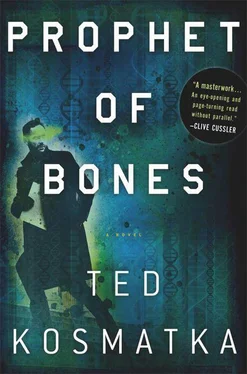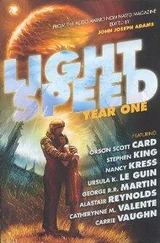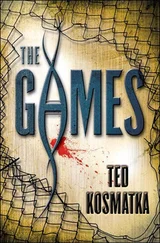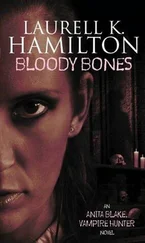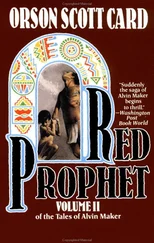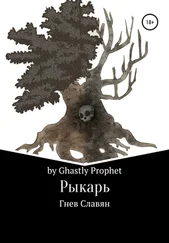On the table was a large file. The lawyer opened it.
“These are your log-in times for the duration of your employment at Westing.”
Paul was careful not to let his face show anything.
“You’re usually here by eight-thirty, though the time does fluctuate a little. Less than most; you’re fairly consistent. Would you consider yourself a consistent person, Paul?”
“About normal, I suppose.”
“No, I wouldn’t say that.”
The lawyer pulled out another sheet. “SAT scores in the ninety-ninth percentile. You’re a smart guy, Paul.”
Paul’s mouth dropped open. “How did you get my SATs?”
“They’re part of your school records. Your school records were made available to your employer upon conditions of your initial interview process. Don’t you remember?”
“No, I don’t.”
“That’s the thing about fine print. Nobody really reads it, do they? As I was saying, you’re a smart guy.”
“Smart enough.”
“Before here, where did you work?”
“A college lab.”
“Doing what, exactly?”
“Cleaning up shit, mostly.”
The lawyer pulled out another sheet of paper. “Says here you were an animal tech.”
“Like I said.”
“Father deceased. Mother lives out of state. No sibs. No extended family.”
“That’s right.”
“You see, Paul, I’m just trying to get a feel for who you are. I’m trying to understand you.”
“That’s flattering.”
“Would you have any idea why I’m so interested in you?”
“I don’t have a clue.”
“There is a problem, Paul.”
“What kind of problem?”
“A security problem.”
“I’m sorry to hear that.”
“We’ve had a breach, you see, which is why they called me. I’m the guy they call when a potentially complicated situation arises, and this is potentially very complicated.”
“That’s awful.”
“We have reason to believe that someone broke into the lab during off-hours.”
“I hope you catch him,” Paul said, then added, “or her.”
“Oh, I don’t think there’s any doubt we’ll catch him.”
“I like your confidence.”
“You don’t mind if we ask you a few questions, do you, Paul?”
“Is that a question?”
“Have you ever entered the lab at hours other than working hours?”
“No.”
“Have you ever broken into the lab?”
“No.”
“Have you ever knowingly or unknowingly unlocked any doors or windows that could allow another individual or yourself to access the facility during off-hours?”
“How could I tell you if it was unknowingly?”
“‘Unknowingly’ gives you an out. You could say, ‘You know, I do think I left the door unlocked, but I had nothing to do with the three guys who broke in later.’ That kind of thing. Have you ever unknowingly disabled the security of the lab?”
“No,” Paul said. “Not that I know of.”
“Have you ever worked on any unsanctioned projects?”
“What do you mean?”
“Have you ever preformed any testing without the express consent of a supervisor or persons in charge of testing protocols?”
“No.”
“Done any testing that was not directly supervised?”
“No.”
“How’s your eye, Paul?”
Paul looked straight at him. “Fuck you.”
The man in the expensive suit turned to the lawyer. “Are we done here?”
“We’re done,” the lawyer responded.
“No.” It was the round-faced man, sitting in the middle. He folded his hands in front of him, his expression very serious. “You can help yourself here, Paul.”
Good cop, bad cop. Paul knew the formula, as did any watcher of American television. They weren’t cops, but the principle was the same. And it was actually a bit reassuring.
“We have reason to believe you’re involved in this somehow,” the man went on.
It was reassuring because it told Paul that he wasn’t totally fucked yet. Power only bothered with good cop when they still had something they needed. But still, the noose was tightening. It was just a matter of time. He had a few days maybe, if he was lucky.
“You’ve been through a lot in the past months,” the good cop went on. “That’s something we understand, and we can work things out. We just need you to talk to us.”
“I don’t know what you’re talking about.”
“You’re making a bad choice, Paul.”
“No, he’s not,” the lawyer said. He smiled. He knew that Paul saw the charade for what it was. “It’s not going to matter one way or the other.”
“I wish I could help you,” Paul said.
“Are we done here?” the third man said again.
“Yeah, we’re done.”
“We’re done,” the lawyer said.
The third man spoke again: “You’ll need to turn over your laptop for security reasons, Paul.”
“I understand,” Paul said. “The sooner we get this done, the better.”
The lawyer chimed in: “I’d agree with that, Paul. It’s just to eliminate you from suspicion, of course.”
“Of course.”
“It’s up in my office,” Paul offered.
“What is?”
“My laptop.”
“Oh, we know where it is,” the lawyer said. “We already have it.”
Paul never even went home.
The highway. The rolling dark.
For a long time, he wasn’t sure where he was going.
When he knew, he placed a phone call.
“Sure,” she said. “I know a place.”
They talked for a minute, and he hung up the phone. The hours rolled by. He stopped for gas in Ohio.
He pulled into the lot on Dearborn ten minutes later than he’d expected to. The clock on his dash read 10:45.
“Shit,” he said.
He slid into a parking spot, cut the engine, and checked the GPS on his phone one last time. The blue dot and the red dot were on top of each other, so he was in the right place. She’d said the place was dark and quiet, but from where he sat it looked anything but.
He checked his face in the rearview mirror. A bloodshot eye stared back at him. After an evening of driving, he’d made the mistake of grabbing a quick nap—twenty minutes’ sleep at a rest stop on the side of Highway 94. Waking up had been harder than just going without sleep.
Paul ran a hand over his wild hair. He was exhausted. The rain was coming down again, a slow drizzle that puddled the streets. He pulled his hood over his head and ran out into the rain. The moisture felt good on his face; it made him feel more awake.
“Dining alone?” The maître d’ asked. She was short and thin and pierced. From inside, music was thumping.
“I’m meeting someone,” Paul said. “She’s probably already here. Is it okay if…”
The maître d’ waved him through.
Lilli, it turned out, had gotten the dark part right. The restaurant was so dimly lit that he had trouble seeing the faces of people more than a few tables in front of him. He did his best, scanning the room, looking for something familiar. The crowd was young and hip and moneyed. Mid- to late twenties, mostly. City people in city styles. Paul waded into the room, dodging an oncoming waiter with a steaming plate of Italian.
A raised hand caught his attention. He lifted his chin, and Lilli waved him over to her table in the corner.
“So you came after all,” she said. Her pixie cut was gelled into a complication of short, flowing spikes. Like fire, if fire were black. Large hoop earrings accentuated the curve of her delicate neck.
Paul sank into the leather booth, squeezing his bulk behind the table. “Sorry I’m late.”
“I was beginning to think you wouldn’t show up.”
“Traffic,” he said, the start of some excuse. Then he simply told the truth: “I ended up catching a quick nap. It’s been a bad day.”
Читать дальше
